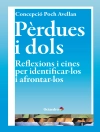The Comprehensive Autism Planning System for Individuals (CAPS) is a reflection of its creator. In his role as a state and national leader, Shawn Henry serves as an advocate for autistic individuals. Shawn and co-author Brenda Smith Myles clearly describe each element of the CAPS model in a well-organized text. Throughout the book, the authors and expert contributors highlight a variety of evidence-based strategies that correspond to each area of the CAPS. The CAPS model illustrates their ability to create meaningful change through realistic and practical means. It’s a simple, yet powerful system.
This innovative approach helps teachers and educational teams plan and implement a student’s education across the school, including the Individualized Education Program (IEP), and the curriculum relevant to the student. It takes the team through the process of planning out the goals/objectives to be targeted in each activity of the day, the modifications and accommodations that should be provided to support the student in each activity, the sensory supports needed to help the student stay engaged, and the communication and social supports for successful learning.
It shows the type of data to collect for each area and helps to note what reinforcers have been shown to be successful. While this system was developed for use with individuals on the autism spectrum, it can also be an essential tool for any student, regardless of the types of supports and needs they have. There are also vocational and transitional formats that are available for students making the transition to work.
The CAPS has been updated to address current trends in special education instruction and research. In this edition emphasis is placed on:
- Inclusion
- Successful practices that support learning for autistic students
- Updated evidence-based practices and case studies that apply the CAPS system to post-secondary education and employment
Through the CAPS, autistic individuals have access to meaningful instruction that will allow them to reach their potential.












